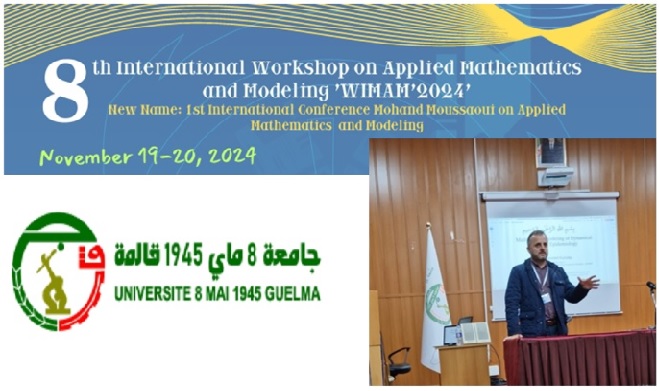
In this talk, mathematical modeling of dynamic systems includes the study of equilibrium points within dynamical systems and the evaluation of the stability of these points to understand the system's long-term behavior.
In modeling the dynamics of B-cell chronic lymphocytic leukemia (B-CLL) with interactions from Natural Killer (NK) cells, Cytotoxic T cells (such as CD8+ T cells), and chemotherapy, he constructed a system of differential equations to represent the interactions and influences each component has on the others. Parameter u is the concentration of chemotherapy. A quantitative understanding of the kinetics of the immune response to treatment is crucial in designing treatment strategies, such as dosing, timing, and predicting the response to a specific treatment.
https://lmam.univ-guelma.dz/sites/lmam.univ-guelma.dz/files/Appel%20a%20Communication%20WIMAM%2024%20%28%20EN%29%202.pdf